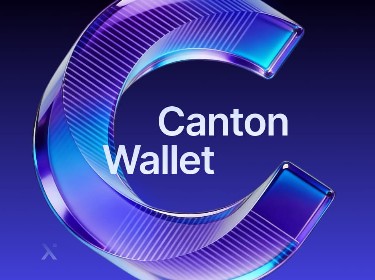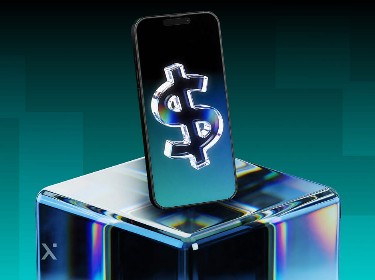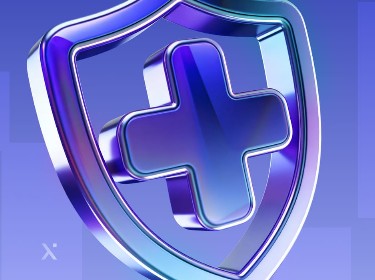Blockchain startups are constantly challenging the status quo of almost every industry imaginable. These startups have the power to change how we all take ownership of our data, our assets, and our lives.
Blockchain has become a popular buzzword over the last few years, with most people being introduced to the concept through cryptocurrency like Bitcoin and Ethereum. But since its introduction to the world by Satoshi Nakamoto in 2008, people have tried to implement the concept of the blockchain into every industry possible.
Thousands of startups have risen to the challenge of attempting to disrupt industries and put the power back into people’s hands. However, not all blockchain startups are equal. Today we will learn why that is the case and examine what makes a successful blockchain startup.
What is a blockchain startup?
The answer to this question is simple but it has far-reaching implications. A blockchain startup is a startup or a company in the early stages of development that uses blockchain ideals in their business model. That’s the simple part; the complicated one is that this covers a lot of different industries and solutions from blockchain powered security management to peer-to-peer and white label crypto exchange development. A core tenet in a blockchain project seems to be a desire to “disrupt” the industry in which the startup operates. This means they want to take advantage of the unusual features of the blockchain to allow consumers to function in more different and unique ways. This usually puts power in the hands of consumers.
This ideal is a good fit for startups because when anyone tries to do something new, they want to challenge the status quo and offer people better solutions. However, blockchain startups encounter a particularly difficult challenge that not many other startups face. Blockchain is still a relatively new technology that is rapidly growing itself but lacks technical support. Getting started can be very difficult if there are not many people who can make what is needed to achieve results.
What’s more, the overall adoption of blockchain is still very gradual. Your aunt or uncle may know the term “Bitcoin” but they’re unlikely to know that a blockchain is behind it, let alone how the blockchain operates. A more traditional software startup does not have to struggle with that particular problem. The number of developers is growing rapidly, and everyone uses some sort of smart device or at least a smartphone. A traditional startup doesn’t need to worry about global adoption when its base platform is ubiquitous.
Blockchain technology could be abstracted in a way to look more “user friendly” but it almost always involves a learning curve. That’s what happens when you try to flip something on its head. Blockchain startups are revolutionizing too fast but Rome wasn’t built in a day. It’s important to keep trying new things so that we as a society can develop.
How to set up your blockchain startup
![]()
As business owners realize that blockchain can modify current processes, making them more efficient, companies are looking for the ways to integrate with this technology. The already established blockchain startups are very diversified, some focusing solely on one particular industry and others having use cases across a variety of different sectors of the economy. To meet your goals, it’s important first of all to organize all your blockchain startup ideas, set up the right blockchain adoption strategy, and work out a detailed business plan.
These are the steps that form the backbone of any blockchain startup launch:
- Make sure that a blockchain solution corresponds to your business idea. With all the hype surrounding it, making it sound like a universal remedy for any type of business problem, it’s essential to assess whether blockchain is a viable option for you. Have a discussion with your CTO and technical experts, take advice from a blockchain consultancy, and perform a feasibility study with them, collect your partners’ opinions and check if blockchain is the right choice or there is a better solution.
- Decide which parts of the project require blockchain solutions. After you’ve chosen blockchain technology as the core for your startup project, carefully plan out the scope of the solution. Map out the exact functionality and features you want to be backed by blockchain and document how they will be implemented and integrated with other applications.
- Select the right blockchain platform. The blockchain platform you choose defines the level of performance, flexibility, privacy, and transparency of your project. Ultimately your blockchain startup’s success strongly depends on how well the platform fits the use case. Before creating a blockchain startup, carefully research the projects that have already benefited from this technology integration, and have a discussion with your tech team to make the right decision.
- Include blockchain implementation in your business plan. Weigh up your associated expenses, revenue, and profit forecasts regarding blockchain application development. Make sure you incorporate this into your business model to make more accurate predictions and efficiently plan your budget.
- Involve all stakeholders in your blockchain startup development. Collect regular feedback from all parties and potential users of your blockchain project. Use this information to make appropriate changes in the next iteration of development to assemble a product that suits your audience best.
Top blockchain startups across different industries
![]()
The phenomenon of blockchain technology is that blockchain startups are finding wild and imaginative ways to fit the technology into industries that might not be obvious on the surface. But once you dive into what the project is about, you begin to understand how they plan to transform that particular industry. Let’s explore a range of industries, and see how blockchain startups plan to make improvements.
Top blockchain startups in education
Everyone remembers what it’s like to lose interest in a subject, or can imagine how teachers run out of ideas to keep students involved in a topic. You don’t need to be an expert to know that most of the world’s education systems are outdated and highly ineffective. While traditional education models involve paper-based records and journals, students and teachers lack accountability. It turns out that blockchain can easily solve all these problems.
Blockchain naturally enables transparent and advanced accounting; the immutable blocks added to the chain contain all data related to assignments, school activities, and grades. Education system participants and potential employers have access to what’s stored, and this motivates students to study well. Moreover, who doesn’t like rewards, especially those that are paid out by modern cryptocurrencies? Successful students will also get a chance to earn them. Read on to find out which blockchain startups have already been launched in the education sector.
ODEM, for example, is a blockchain startup that is focused on providing affordable, quality education as well as giving everyone in the system real ownership of their contributions. So what does that really mean? Well, when people want to learn and they succeed in it, they gain ownership of the certificates that prove they have that knowledge.
The platform provides blockchain storage of academic records and certificates. Thus recruiters have a verifiable collection of information that will point them directly to the people with the skills they’re looking for. Another benefit is that when teachers create educational content, they are protected as copyright holders. Now they can also get rewards for providing people with marketable skills via online lessons.
Hyland Credentials is another innovative education startup that stores blockchain-secured digital credentials and allows students to openly share and send them anywhere – including potential employers. Examinations, transcripts, and diplomas are accumulated into a student’s universal lifelong record of educational achievements.
With open standards and blockchain-based verification, the credentials are designed to be in compliance with state regulations and offer full transparency. Hyland provides an easy-to-use mobile app, available both on iOS and Android.
Top blockchain startups in supply chain and logistics
Globalization, growing consumer demands, and changes in habits and preferences have also transformed supply chain processes. Supply chains have grown to such a size that it is difficult to count the number of intermediaries on the journey of a product from producer to consumer. This has resulted in increased costs and a loss of trust between participants. Blockchain brings what was lacking in logistics software development – transparency, speedy identification of the goods’ origins, enhanced security, and trust.
Blockverify additionally provides participants of the process with a mechanism for detecting counterfeit goods. This supply chain blockchain startup enables secure data transmission along with digital identity functionality. Another feature that helps prevent fakes in the chain is NFC tags. They are used to record transfer history, ownership information, location, and other important data. The goods are scanned by all participants in the supply chain, and the tags finish their journey at the retailer’s point of sale.
Everledger offers similar functionality: it reduces risks of fraud but it mainly tracks the provenance of luxury goods such as works of art, diamonds, gemstones, wine, and so on. These are undoubtedly important categories that need to be well protected. Works of art are often vulnerable to damage or tampering, so this startup also contributes to heritage preservation.
Top blockchain startups in healthcare
Healthcare is not immune from counterfeiting but in this industry the use of counterfeit medicine can be fatal for the consumer. Once again, blockchain rushes to prevent fakes by allowing supply chain participants to verify and authenticate drugs, trace their origins, and supply chain history. Another aspect of the healthcare system that blockchain intends to revolutionize is the way electronic health records are maintained.
Blockpharma is among the most promising blockchain startups in the field. This is where the best of blockchain, cryptography, and machine learning algorithms join forces, attack, and prevent counterfeits. Consumers also have an opportunity to take advantage of this French drug tracking solution; they can instantly check the authenticity of every medicine they buy through the Blockpharma application.
Patientory takes care of patients’ medical records and empowers them to be in charge of their health. It is a common problem in many countries that people have no access to their records and can’t view them whenever they need to. This global health management software addresses this challenge by providing healthcare organizations and patients with a secure platform to manage and transfer their health data.
EncrypGen is a unique solution in healthcare. A few years ago it was the first genomic blockchain-enabled free market for data to become available on the Internet and is still one of a kind today. How does this US-based platform work? Anyone who has already had a DNA test may upload their raw DNA data file and create a profile there. EncrypGen de-identifies the raw DNA data file by removing the name, email address, and other sensitive information. Buyers of DNA data search for Gene-Chain profiles suitable for their projects and buy anonymized genomic data with DNA tokens.
Thus, scientific researchers and pharmaceutical laboratories access a diverse sample of genomic data to find more effective treatments for diseases, and data holders have a chance to receive financial benefits in the form of cryptocurrency.
Top blockchain startups in finance
The financial sector is an industry that has been experimenting with blockchain solutions for years. Since this field is directly related to transaction processes and is concerned about fraudulent activities, blockchain seems to be cut out for the financial sphere.
Blockchain technology is transforming transaction processing by eliminating intermediaries and employing digital identity and multi-step verification. For banks and financial institutions, this also means no time-consuming paperwork. All payments become more secure, faster, and traceable. With blockchain, customers can be confident that they will not fall victim to fraud.
Debitum is a financing solution for small businesses based on blockchain. It is aimed at decentralizing the process of giving out loans to promising companies for their development. The loan providers on the platform are not banks or other intermediaries; they are investors looking to support projects and earn interest. Debitum also brings other decentralized participants into the picture such as risk assessors that help calculate a unified risk score for every loan. With the help of the platform, investors can compare business assets based on profitability, while small business owners get an opportunity to develop their projects.
Colendi is a Swiss FinTech startup providing democratized credit scoring and payment solutions for businesses and regular consumers. Its credit evaluation tool helps every user receive their own global financial passport. The platform enables consumers to instantly shop and pay for products from a global network of merchants. Businesses, on the other hand, have the opportunity to integrate Colendi’s credit scoring into their services and use it as a white-label solution.
Bankera has set a goal to replace banks by joining traditional and crypto economies into one single ecosystem. To do so, it offers more appealing and beneficial financial services to both consumers and companies on a global scale. In essence, it’s a blockchain-based bank that provides a cryptocurrency account with an ability to make cross-border payments hassle-free and without overburdening fees. Apart from a convenient and user-friendly mobile application for fund management, consumers and businesses can also get credit and debit cards that completely remove friction when making payments.
Top blockchain startups in energy
The energy sector, a highly transactional and complex system, adopted blockchain technology that promised to deal with sources, suppliers, distributors, and intermediaries in a much more efficient way. Blockchain startups have sprung up to offer new features and capabilities such as automation, peer-to-peer energy trading, elimination of middlemen, secure data management, and proper accounting for all participants.
Lightency is an energy blockchain startup that is focused on getting sustainable power to millions of people on the African continent where electricity may be scarce, unreliable, or just not available at all. Lightency intends to provide energy consumers with low-cost decentralized solutions to buying energy and even enables consumers to sell back excess energy. This allows for sustainable microgrids and competitive pricing from both utilities and “prosumers” who are able to channel excessive amounts of electricity.
LO3’s Pando platform works in the same way but in the north-eastern part of the United States. This disruption of the power industry is two-fold as it turns electricity into more of a commodity that you can buy. It also becomes part of the community and generates it even if you aren’t a power plant or utility company. Participants are encouraged to create their energy profile and start generating and sharing power themselves through the use of renewable resources such as wind and solar, distributed across the community network.
Power Ledger is a platform for exchanging renewable energy and environmental assets. One of the main problems in power consumption is the difference in demand throughout the day. Oversupply creates reverse electricity flows back to the distribution networks and destabilizes the power grid. The Power Ledger platform helps solve these problems and at the same time creates new opportunities by enabling the trading of solar energy within microgrids. Residents can choose the right type and quality of energy and then sell or buy excessive kilowatt-hours.
Top blockchain startups in agriculture
Decentralization, transparency, and traceability are the three characteristics that the agriculture and food industries have been trying to achieve in their systems, and this has become reality with the introduction of blockchain. Blockchain-based platforms allow participants to trace food origin back to the farm within seconds, rather than days or even weeks. This improves safety and efficiency as retailers can now identify the origin of contaminated foods and quickly recall certain items from the market. Blockchain also protects and helps farmers sell their products at fair prices by providing lower transaction fees and eliminating intermediary services.
The folks at AgriDigital, for example, have set up an agriculture blockchain startup that is working to make the management of agricultural goods easier and more accurate. They also promote the sustainable use of land and implement smart contracts for accurate bookkeeping.
AgriLedger is striving to revolutionize the agricultural supply chain and support farmers. This UK-based corporate project gives them easier access to financing and the ability to track food and store transaction data. Developers have noted that with this blockchain solution, farmers are now able to plan and harvest more effectively and gain market access. Trust and transparency here are ensured by the immutable nature of blockchain.
Demeter has a similar purpose but focuses on the Southeast Asian region and represents an ecosystem with solutions to the entire agricultural supply chain. As one of the largest food producers in the world, Southeast Asia still faces many challenges such as food security and traceability, an immature ecosystem, food prices, underserved farmers, food waste, and more. Demeter combines the advantages of blockchain technology, IoT, artificial intelligence, systems design, and data analysis solutions to create an advanced and intelligent agricultural economy.
Top blockchain startups in auto
The automotive industry needs blockchain technology solutions to optimize vehicle recalls following the detection of faulty components and to identify counterfeit car parts. The latter option can be performed with RFID tags attached to the original vehicle components. When the car owner plans to transfer ownership to another person, blockchain provides transparency and significantly speeds up the process. Let’s take a look at other blockchain use cases with the examples of already launched startups.
A German startup ARXUM used the power of blockchain to design a licensing model for ready-to-use supply chain management services. Their supply chain system is related to automotive parts that customers can trace back to manufacturers. Manufacturers also analyze the data and optimize their production accordingly.
The VINchain startup from the US offers a complex system that combines software, hardware, and blockchain technology solutions. The software solution is represented by the VinChain application, where users can request detailed reports on vehicle history. And blockchain solutions protect data and increase confidence in the used car market.
VINchain has introduced two products, VINchain Vehicle Passport and VINchain Data Verifier; they provide insurance companies with access to all information about vehicles and driver behavior.
As VinChain developers admit, any potential customer can receive a report before deciding to buy a car. The report includes information on whether any identified damage was found, whether the model had any faults, and if the vehicle was ever stolen. Customers can also check photos of the vehicle, see if the mileage has been cut, and view previous registrations. Finally, they receive detailed information about the upcoming maintenance. Another interesting feature is that when using the platform and/or simply driving, drivers can earn VinChain tokens which equal to real money.
Top blockchain startups in work and recruitment
Probably one of the newest areas where blockchain is just beginning to demonstrate its capacity is recruitment. Firstly, blockchain can help create a trusting environment for HR professionals and potential employers who don’t know each other yet. Recruiters don’t need to search for professors or previous employers to prove that the candidate’s qualifications and previous work experience are authentic. Now, instead of spending hours on checking data, recruiters can focus on developing relationships with potential candidates.
Secondly, blockchain provides an opportunity to organize the workplace, transform the way salaries are paid, and even collect records of employee behavior. There are dozens of promising blockchain HR startups in this area, and here are just some of them.
Chrono.tech is a blockchain-based HR solution that aims to transform the way companies recruit, hire, and manage employees. This startup has developed four blockchain HR software solutions, and each product carries a different purpose and set of features. LaborX, for instance, is a blockchain-secured platform specifically created for freelancers and their clients. The platform helps them connect, communicate, and execute efficient transactions while being protected by smart contracts.
APPII claims to be the world’s first blockchain career verification platform designed to make life easier for both candidates and recruiters. To understand the process, let’s break it down into four stages: creating a profile, blockchain verification, sharing with employers, and getting a CV. This description no longer fits the typical recruiting platform, where potential employees have to write down all the information themselves, and companies often don’t have a clue about how much of it is true.
APPII provides secure biometric verification to prove the identity of the applicant; it also verifies achievements, qualifications, and work experience with selected institutions and employers, creates personalized CVs, gives access to top employers, and matches this verified CV data with job requirements.
The hiring process can also be simplified with Dock which provides cryptographically verifiable credentials. With the Dock platform, universities and any certificate-issuing institutions obtain decentralized identities (DIDs) on the blockchain, where they can also issue and revoke credentials of candidates’ skills and qualifications. Job candidates have control over their personal information and can use verified credentials to create digital resumes. Potential employers will have no doubts about the reliability of the information in the CV.
Top blockchain startups in telecom
The telecommunications industry demanded innovation in this competitive market but wanted to keep prices affordable for its customers. Employees in this field also thought about how to improve security and automate their core internal operations.
Blockchain technology immediately offered solutions to these requirements. Some blockchain applications these days are responsible for many telecommunication operations such as billing systems, roaming, and supply chain management. According to reports, blockchain in the telecom market is projected to grow from $46.6 million in 2018 to $993.8 million by 2023.
Telcoin is a Japanese startup that utilizes blockchain technology and mobile money infrastructure to enable global money transfers within seconds regardless of mobile service providers. As the platform is built on the Ethereum blockchain, Telcoin leverages the best features of a decentralized network with multi-signature crypto security.
Telcoin works with mobile operators and e-wallets around the world. Thus it reaches a wide user base who can benefit from this money transfer option at an affordable price.
The US-based startup BitMinutes combines tokenization technology and prepaid phone minutes (or “airtime”). The underlying BitMinutes protocol provides access to free value transfers, payments, credit and prepaid airtime through global third-party retail agents, mobile wallets, and banking systems.
Singaporean Ammbr, in turn, promises that its users will get paid for sharing their internet connection with others. This blockchain-based wireless mesh network buys and sells internet bandwidth autonomously with the use of AMR cryptocurrency in places with no internet connection. In this way, users don’t have to rely on internet service providers.
Blockchain startups with diverse use cases
![]()
Many blockchain startups are not limited to one industry and can find applications in many others. The most important blockchain characteristics are transparency, traceability, immutability, scalability, and enhanced security. It turns out that this is exactly what’s needed in a wide range of fields.
Blockstream
This blockchain startup has a lot to offer when it comes to blockchain services. Their specialty is helping make “sidechains”. These are blockchains that run parallel to the Bitcoin blockchain itself. Blockstream focuses on helping with development, making blockchain projects a reality, and providing the services needed to maintain them. They also offer a myriad of data stream sources to keep up with what is going on in the chain, as well as searchability. One really cool thing they offer is Bitcoin from space! That’s right, they allow you to stay connected to the blockchain even without the internet. All you need is a satellite connection, and you can be up-to-date.
Voatz
What we have here is a blockchain startup that is trying to make voting a more accessible and secure system than the ones we have today around the world. They have created a system that is very similar to mail-in voting but instead a voter uses their smartphone and the Voatz app. The user verifies who they are and they are given their ballot for the current election. This may not seem too remarkable, though. But what makes Voatz so great is that it uses the inherent blockchain security properties to avoid tampering and misrepresentation. They also offer end-to-end encryption and risk assessment. Furthermore, it’s always nice to see a company that has bug bounties.
ThunderCore
ThunderCore is another blockchain startup that is looking to accelerate distributed applications (DApps) by providing developers with the tools they need to make a successful blockchain-backed application. They offer lots of products, and their users have created all kinds of applications from identity protection apps to crypto wallets and video games. Another great thing about ThunderCore is that they provide a faucet for their coin as well.
BlockCypher
Here we have another blockchain startup with a focus on developing blockchain solutions. BlockCypher offers developers APIs to help build their apps. They provide cloud-based infrastructure so that their clients do not have to worry about the startup cost. You can see in their case studies how they help other companies make their blockchain dreams come true.
ShipChain
ShipChain is focused on revolutionizing the logistics industry. Similar to AgriDigital, it helps companies keep track of produced goods and allows them to ship and sell them with increased confidence. They claim to integrate effortlessly with a company’s already existing inventory management system so there is no need to use their app. Besides, ShipChain offers blockchain-as-a-service (BaaS) if you need something more custom.
Conclusion
As you see, blockchain technology is rapidly and surely finding its way in many industries. Blockchain startups in such spheres as education, supply chain, logistics, healthcare, finance, energy, agriculture, recruitment, and telecom have already gained much prominence and engrossed the attention of many. Thanks to these startups, many companies and individuals have managed to reap the benefits, satisfy their needs – and the list of those wishing to delegate task solutions to blockchain startups is bound to extend in the future.
If you’re one of those who are in two minds about whether to launch a blockchain startup or not, it’s advisable to find a reliable and experienced partner who will provide you with consulting, training, and product development. Be sure that a great result is guaranteed and your startup will vault to the top.




